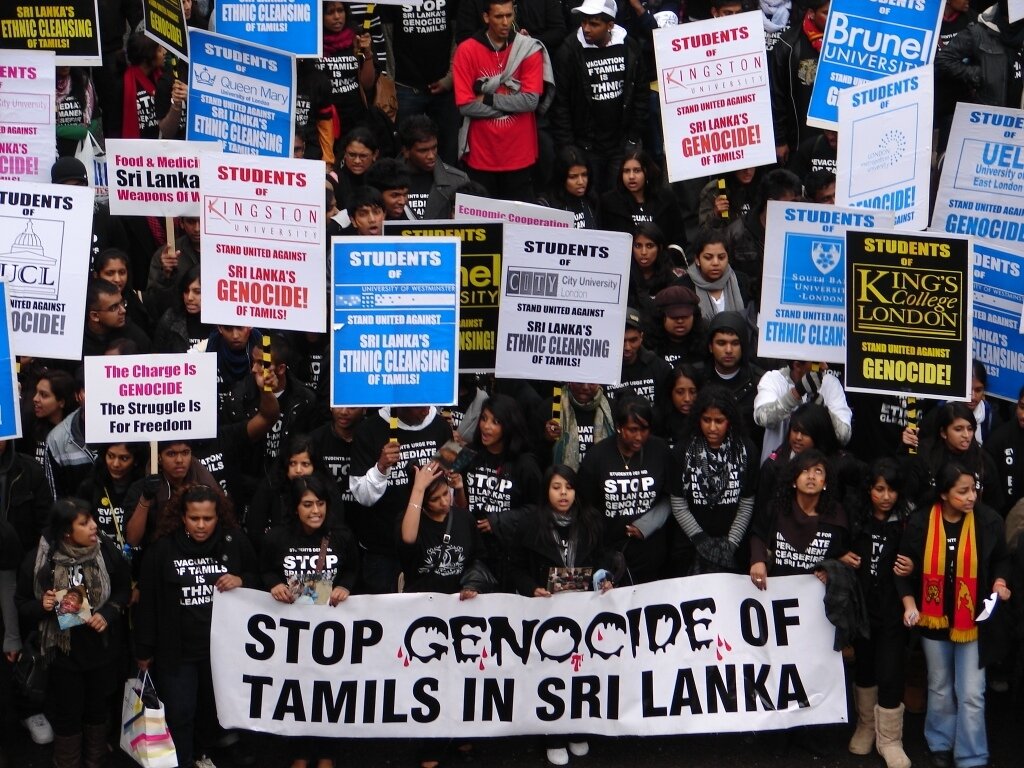BY: VENNILA MATHIALAGAN
When I was eight, I remember being angry that my parents cancelled my birthday party because of ethno-political conflict back in Sri Lanka. Several years later, I learned that the “conflict” my parents cancelled my birthday over, was a massacre of 40,000 innocent Tamil civilians by Sri Lankan military forces. As a child, I was extremely sheltered and distanced from the gruesome nature of the injustices experienced by Tamil people - so much that I thought what happened in Sri Lanka was a mere “civil war”. It is only through reading and listening to the stories of Tamil survivors, do I now understand that Sri Lankan Tamil people are survivors of deliberate, intentional, genocidal acts perpetrated by the Sri Lankan government.
As my parents become more comfortable with opening up about their traumatic experiences and I learn more about the history of the genocide on my own, I am less frustrated and moreso drained. To date, not a single Sri Lankan war criminal has been held accountable despite credible accusations and demands from the international community and human rights organizations. Sinhalese nationalism continues to remain rife and tensions between Tamil and Sinhalese people have begun to reignite. No stable peace has ever been achieved on this island.
Justice was never served for both my grandfathers, one of whom was indiscriminately killed and the other, taken by the military for interrogation and never heard from again. Justice was never served for my mom and dad who had to survive the day-to-day realities of a genocide as children and then find the will to uproot their entire lives to a foreign country. Justice was never served for all the hundreds and thousands of lost victims, dead victims and the hundreds and thousands of genocide refugees and survivors. Justice was never served for the Tamil diaspora.
With so many Tamil people commemorating the lives of loved one’s dead or missing, May 18th will undoubtedly be a trauma-eliciting day for the diaspora. Nonetheless, providing space for Tamil people to share our stories and to open up about our intergenerational trauma is critical in demanding for justice and accountability.
Every May 18th is an opportunity to reflect on our collective resilience as a community. Tamil people’s mere existence is resilience. Through the stories my grandma has shared, it is painfully clear Tamil lives were treated as nothing but debris to be cleared off the island. Most Tamil people were never meant to survive let alone succeed - so for the Tamil diaspora to not only persist in their existence and survival but also to flourish, is a true testament to Tamil people around the world.

